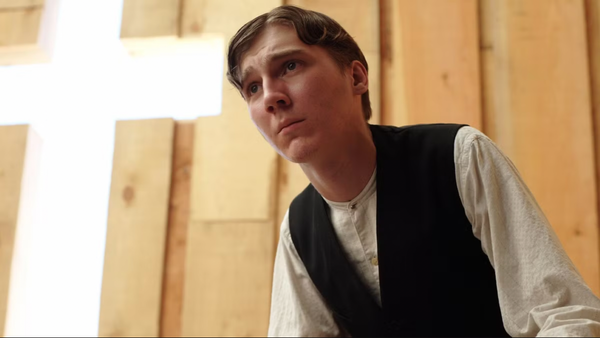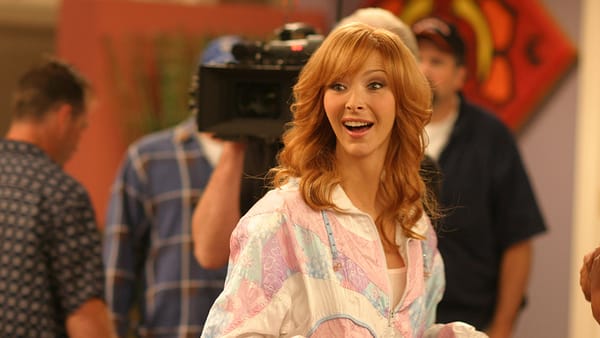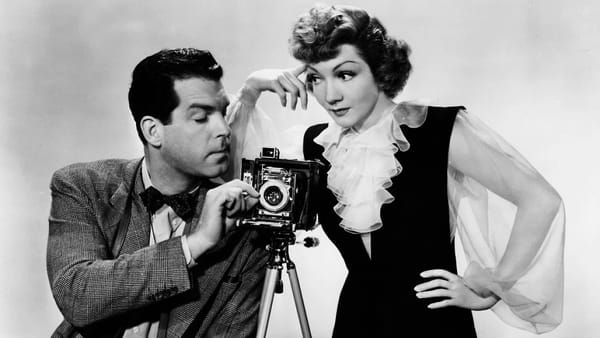Prévert for Perverts: A Glossary of Dirty Discourse in Café Flesh
As Stephen Sayadian's cult post-apocalyptic film Café Flesh premieres in a new 4K restoration, Daniel Bird offers a guided tour through some of its most memorable lines.

Lit by broken fridge lamps, the digital porn princesses of today suffer the inhumane LED look of days-old raw chicken. Once upon a time, however, the rough stuff was lit, framed, and even blocked, like in Café Flesh (1982).
The attention that its creators (writer, director, and designer Stephen Sayadian, and director of photography Francis Delia) paid to its look was matched only by the dialogue. Written by Sayadian with American novelist Jerry Stahl, it is full of rhyme, lingo and patter, not to mention bizarre imagery, derived from 1950s pop culture fed through 1980s atomic angst. Sayadian, who had befriended Stahl during his stint as creative director of pornographic magazine Hustler and Slam, Larry Flynt’s short-lived humour magazine, wrote the first drafts of their three collaborative films: Nightdreams (1981), Café Flesh, and Dr. Caligari (1989). He would then turn them over to Stahl, who would either leave dialogue as it was, tweak, or throw out and do over. What follows is a chronologically ordered list of explication and/or commentary on some of the memorable lines featured in Café Flesh, which screens, newly restored and with Sayadian present, at London’s Institute of Contemporary Arts this Saturday in London. But first, a brief synopsis:
Five years after a nuclear apocalypse. The survivors: post-nuke, thrill-freaks looking for a kick. Able to exist, to sense, to feel everything... but pleasure. In a world destroyed, survivors break down to those who can and those who can't. 99% are Sex Negatives; call them "erotic casualties". They want to make love, but the mere touch of another person makes them violently ill. The rest, the lucky one percent, are Sex Positives, those whose libidos escaped unscathed. After the Nuclear Kiss, the Positives remain to love, to perform; and the others can only watch - can only come to Café Flesh.
“Nuclear Kiss” – on the one hand, utterly nonsensical, on the other, fully encapsulating what Café Flesh is all about: affection or the lack of after an atomic war.
“Good evening, mutants and mutettes” – even the genetically warped are entitled to gendered identities, right?
“We got the act, you got the Jack” – the kind of line you invariably end up trying and failing to explain over the phone late into the night for some unlucky soul damned to translate Stahlisms into another language.
“Crack and whimper” – for all his freakiness, Sayadian in particular is averse to, well, vulgarity as much as banality – “fuck” is never a verb. Conversely, “private ooze”, “lucky spasm” and “panic in the loins”, in place of well, you know… See also: “There's something to make Uncle Foamy stand up and tap dance!”
“Could anything be sweeter than desire in chains?” – As a general rule, the Sayadian/Stahl verbal surrealism is formed from conflating the abstract (desire) with the concrete (chains).
“Need is my fix” – with his addiction memoir Permanent Midnight (1995), Stahl arguably got more out of heroin than heroin got out of him – while Café Flesh predated the depths of Stahl’s habit, the act of impotently watching sex acts is equated throughout with addiction. See also: “We're all strung out” and “you're still chasing the rush”.
“Tableau of desire” – a self-aware reference to Sayadian’s style, which is moving tableau, born from experience working in print.
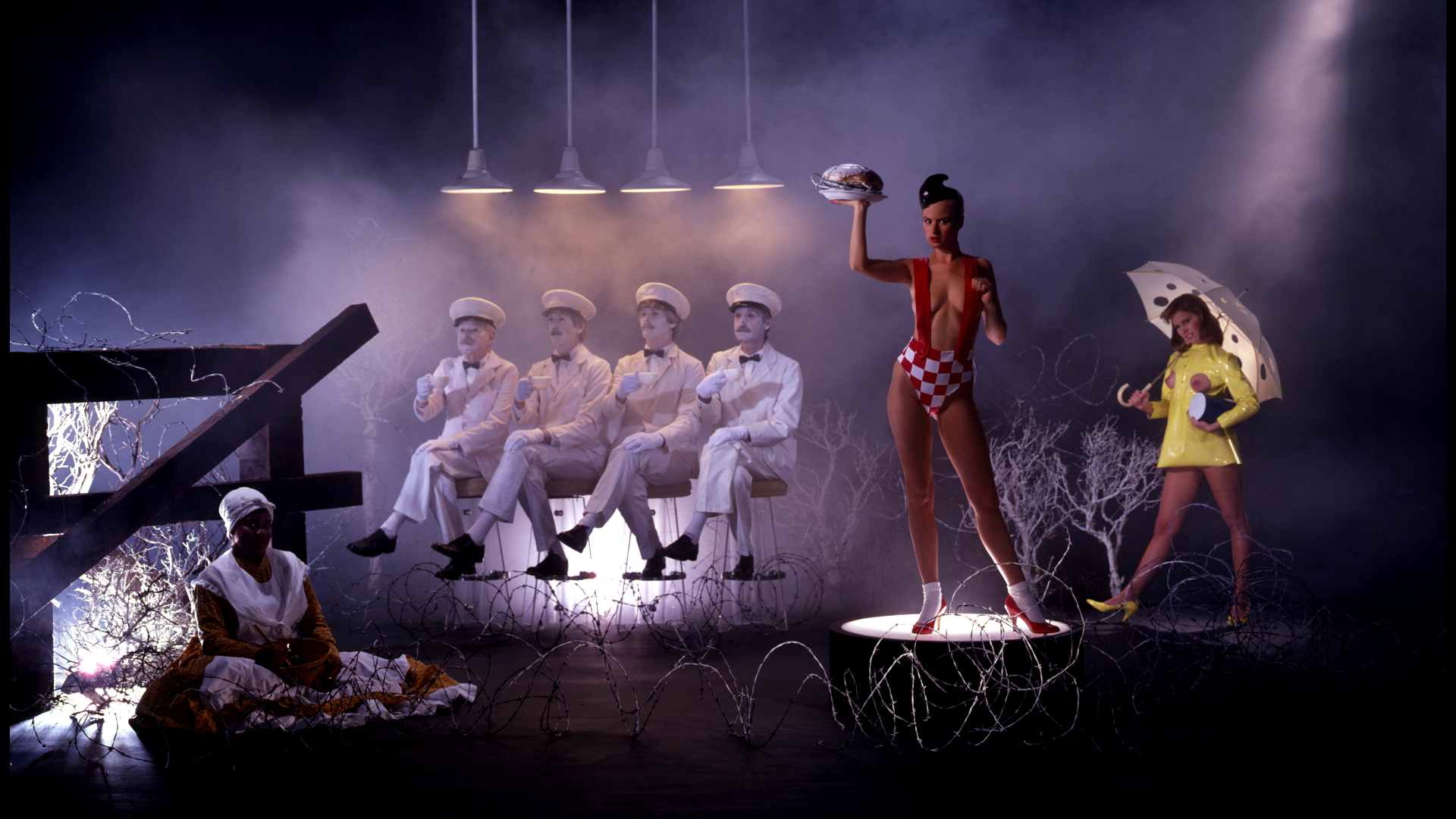
“Mr and Mrs Sane” – in Nightdreams and Dr. Caligari in particular, there is an overt preoccupation in the Sayadian/Stahl world with the relationship between sexuality and mental health. While Café Flesh is frequently characterised as a punk film (understandable, given that was the then-contemporary cultural movement), Sayadian’s ethos owes more to freak culture as defined by Zappa (“Post-nuke thrill freaks”), which in turn chimed with ideas from psychiatry and philosophy adopted by countercultures – Wilhelm Reich’s ideas about orgasm (referenced in Dr. Caligari), Herbert Marcuse (Eros and Civilization), R.D. Laing’s anti-psychiatry etc.
“Café Uba” – this suggests a world of off-screen, competing cafés. Uba is a reference to a dominatrix whose Los Angeles shop kitted out outsized heels, such as the pair featured in Sayadian’s iconic poster for Brian De Palma’s Dressed to Kill (1980).
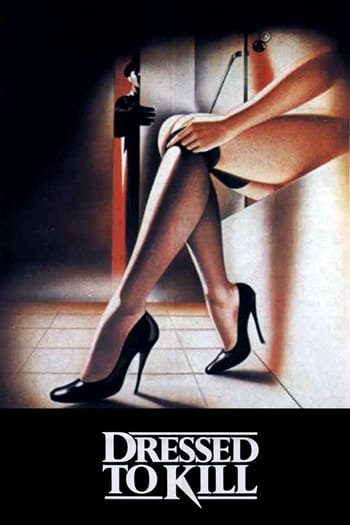
“Strangle a girl with love” – sounds like a gender-swapped variation on the climax of that other art-core masterpiece, Nagisa Oshima’s In the Realm of the Senses (1976).
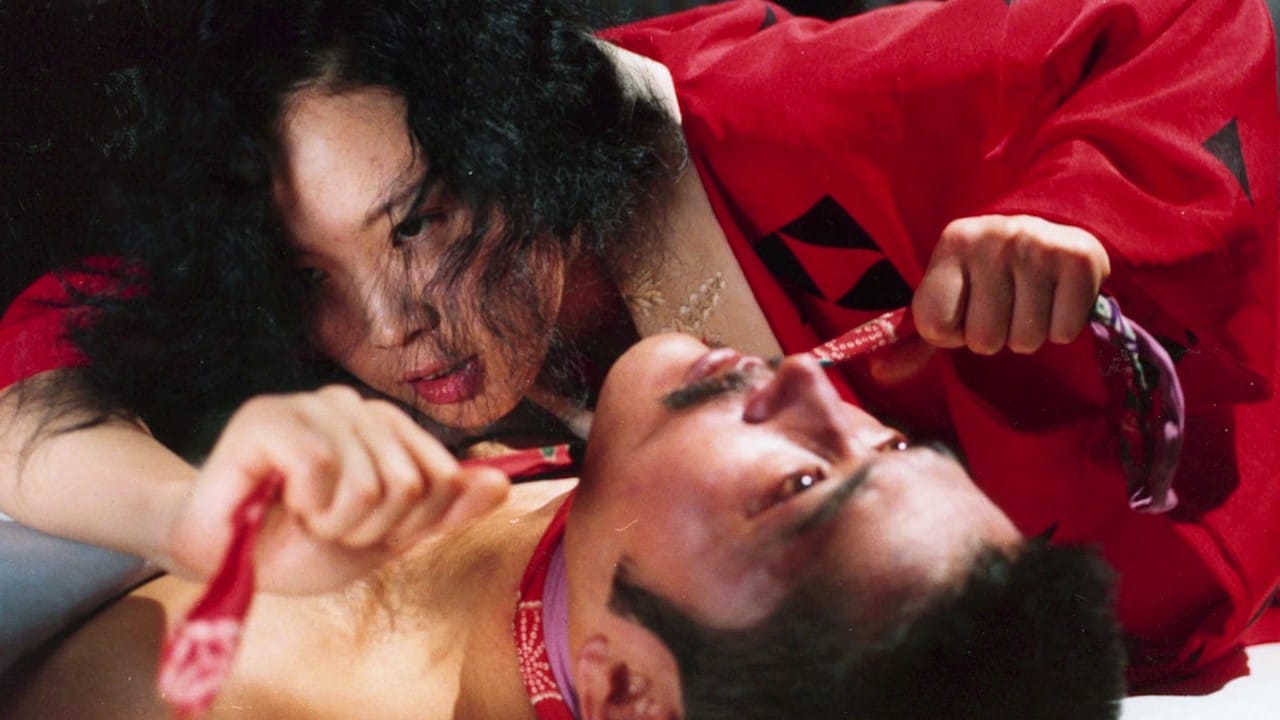
“Every negative thinks every positive down the pike is Jack Lord” – reference to the actor most famous for appearing in Hawaii Five-O, which ran from the late 1960s until the early 1980s.
“Who's the party doll, Silky?” – evokes both Nicholas Ray’s late Cyd Charisse vehicle, Party Girl (1958), as well as Sayadian’s two-part, video-shot, surprisingly entertaining porn marathon, Party Doll A Go-Go! (1991).
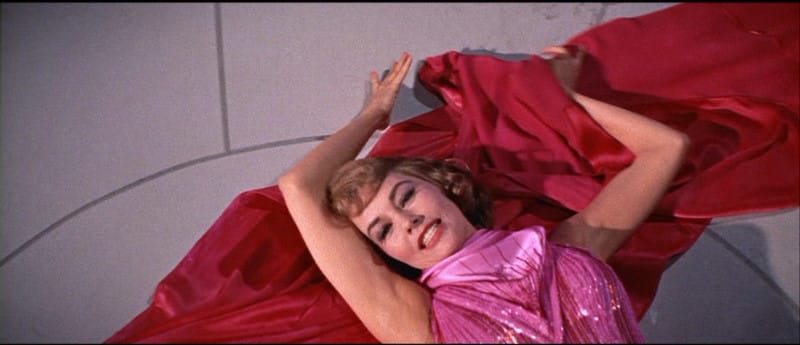
“Hi, you little peepers!” – peepers, in Stahl/Sayadian lingo, are voyeurs – voyeurism is, of course, the defining theme of their work, from Nightdreams onwards and culminating in the stage-play Jackie Charge. Nightdreams and Dr. Caligari both feature the line, “I know you’re watching me” – one that the premise of Café Flesh makes redundant.
“Carnal charnel house” – not just sex and death, but Sayadian/Stahl are all about combining tastes of sweet and sour. Stahl would go on to write explicitly about charnel houses in Poland and Germany for a series of Vice articles, which later formed the basis of a blackly comic road trip memoir about holocaust tourism (sounds familiar, Jesse Eisenberg?).
“A little new blood in the house” – Flesh, meat, blood – the performers in Café Flesh are tradable, slave-like commodities, robbed of agency.
“The Dagwood and Blondie of Café Flesh” – a reference to Blondie, a US comic strip that started running in the 1930s and continues to this day, though it is most likely an object of childhood nostalgia for the first wave of Café Flesh patrons.
“Little Lulu” – reference to another US comic strip dating from the 1930s, featuring the character Lulu Moppet.
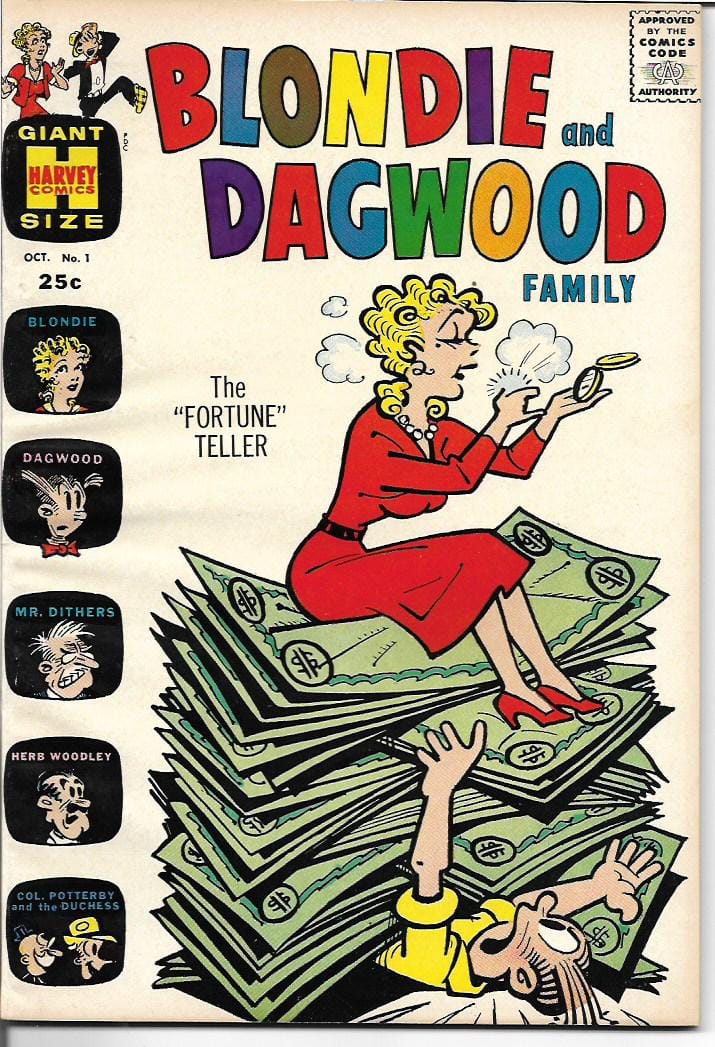
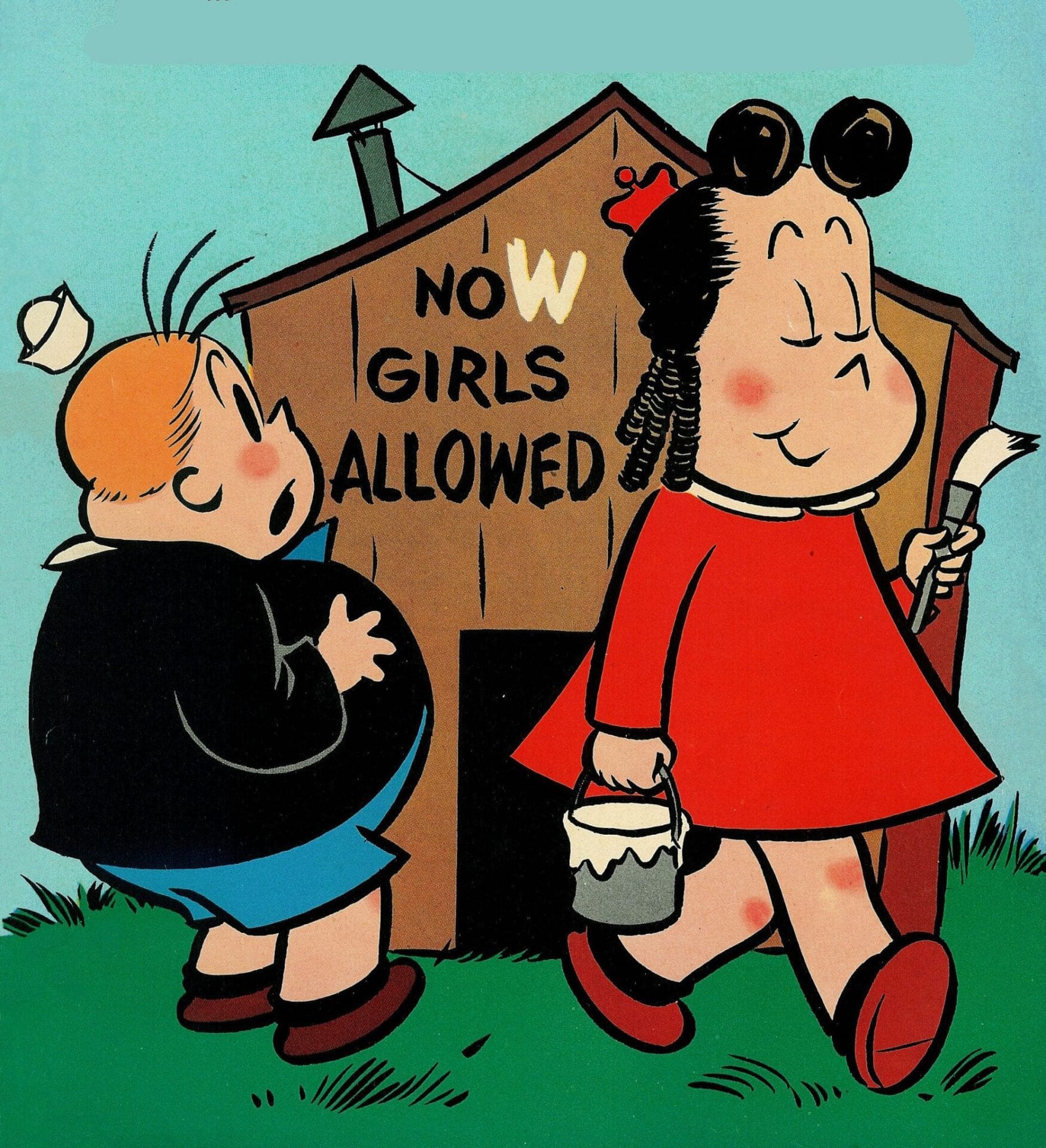
Blondie (left) and Little Lulu (right)
“Mr Joy” – Paul Peterson, Sayadian’s constructor from the 1970s through to the mid-1980s, when an episode involving using the money allocated to buy the raw materials to build the sets of Jackie Charge was spent on dope instead, thus leading to a human resources change in the Sayadian theatre troupe.
“Caught him in Chi-town. Playing the stockyards” – Sayadian, like Bob Fosse, is Chicago-born and -bred. Chicago’s stockyards, of course, refer to the meatpacking industry, immortalised by the socialist muckraker Upton Sinclair in the terrifying novel The Jungle (1905).
“I've seen all the greats. Saw Maris in '61, caught Frankie at Caesars in '60. Dino was there. The Rat Pack days” – Sayadian and Stahl were well ahead of the curve when it came to Tarantino’s postmodernism, but their imagery, both visual and verbal, has a harder edge, dada-like nihilism stemming from unrestrained free associative play of both signs and signifiers.
“Bosco” – a reference to a US brand of chocolate syrup (also referenced heavily in Party Doll A Go-Go!).
“Moms has to go to Sector 17 next week to check out some positives” – another intimation of the world outside Café Flesh – give us, O Lord, the Café Flesh expanded universe over those of Marvel and DC!
“Those guys in the baby drag were a bit too much” – a reference to the Vincente Minnelli MGM musical, The Band Wagon (1953), also starring Cyd Charisse. The subsequent art-deco Busby Berkeley homage features arms reaching out from holes cut in the floors – another Band Wagon gag, one featured in many Berkeley numbers, like Small Town Girl (1953) featuring Ann Miller. Sayadian recycled Paul Peterson (see above) in baby drag from a Slam visual gag involving literal visualisations of proverbs, in this case ‘don’t bite the hand that feeds you’.
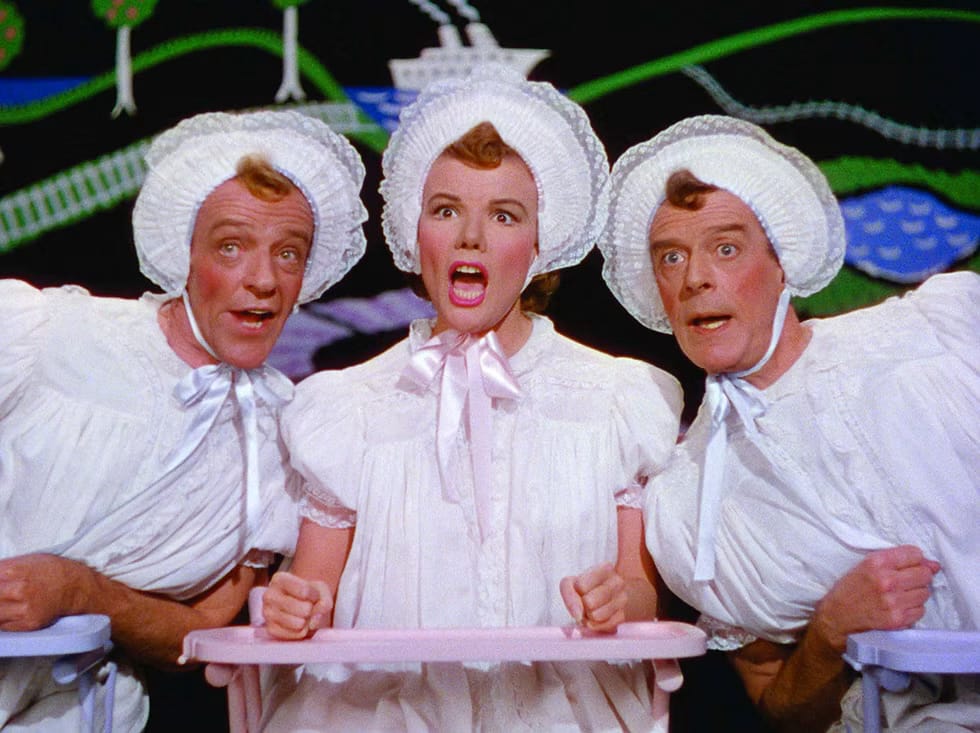
“Memory is a thief, baby” – one could say this line is too good for a porn film. Alternatively, one could recognise Café Flesh as not a porn film, and just a film?
“Torture is the one thing left I can feel” – perhaps a reference to the desensitising aspect of pornography or any addiction.
“I'm thrilled to death to be here” – Hungary’s favourite heavily accented son, Bela Lugosi.
“Maxie got tickled by a sweet cheeks who couldn't hold her crank” – was there ever a line that could have only come from Stahl?
“Pleasure is a widowmaker, brothers” – what does pleasure kill? If Sayadian had his way, Nick would have taken his own life upon witnessing his wife (yes, the one explicit zoom shot in the film is on her wedding ring) Lana consummate her sex positivity.
“How'd you like to perform with me sometime? Off stage” – a reference to sex in pornography as being, essentially, performative in nature – i.e. acts presented to a camera and/or spectators.
“Civilization's foaming at the mouth again” – Café Flesh hit cinemas in 1982, in other words the fag end of the Cold War when things were hotting up (“the super powers in their sweet mad waltz of mutual deceit”) before Gorbachev, Perestroika, and Glasnost – this was two years before Threads (1984) and the time of the ‘Protect and Survive’ campaign.
“Keep it in the cage, Bertha” – perhaps a reference to Bertha Mason, Rochester’s locked-away first wife in Jane Eyre?
“There's a message here, somewhere” – and that’s “the skull in the cage knows that the real bars are always behind the eyes” – for more on that see Part 3 of Adam Curtis’ The Century of the Self (2002), “There is a Policeman Inside All Our Heads: He Must Be Destroyed”.
“Max knows the torment of the terminal outsider. Max has had his own nose pressed against the glass” – who exactly is the “hero” of Café Flesh? Lana’s ending is bittersweet, while Nick’s is just bitter, while Max, the anti-hero, succeeds in not just outing, but coercing Lana’s betrayal of Nick, in some sort of perverse substitute for the sexuality he lacks since losing his “weapon in world war three”, before getting his comeuppance.
“Let the metaphors roll off your tainted cerebellum” – a strong contender for the most fabulously loquacious line uttered in any film featuring hardcore pornography.
“Obliteration is not just the ticket. It is the destination” – are we talking about sex here? Or drugs? Maybe even the apocalypse? All of the above?
“Just the Enforcers flushing out Sex Positives who aren't performing” – the shades-wearing, statuesque enforcer sporting an ominous-looking weapon is Belinda Williams, Sayadian’s wife at the time, who created the remarkable costumes for Nightdreams, Café Flesh, and Dr. Caligari. An excellent cook, Williams reportedly also made a wrap party cake for the shoot of Abel Ferrara’s Driller Killer (1979) which was, of course, red and sticky inside.
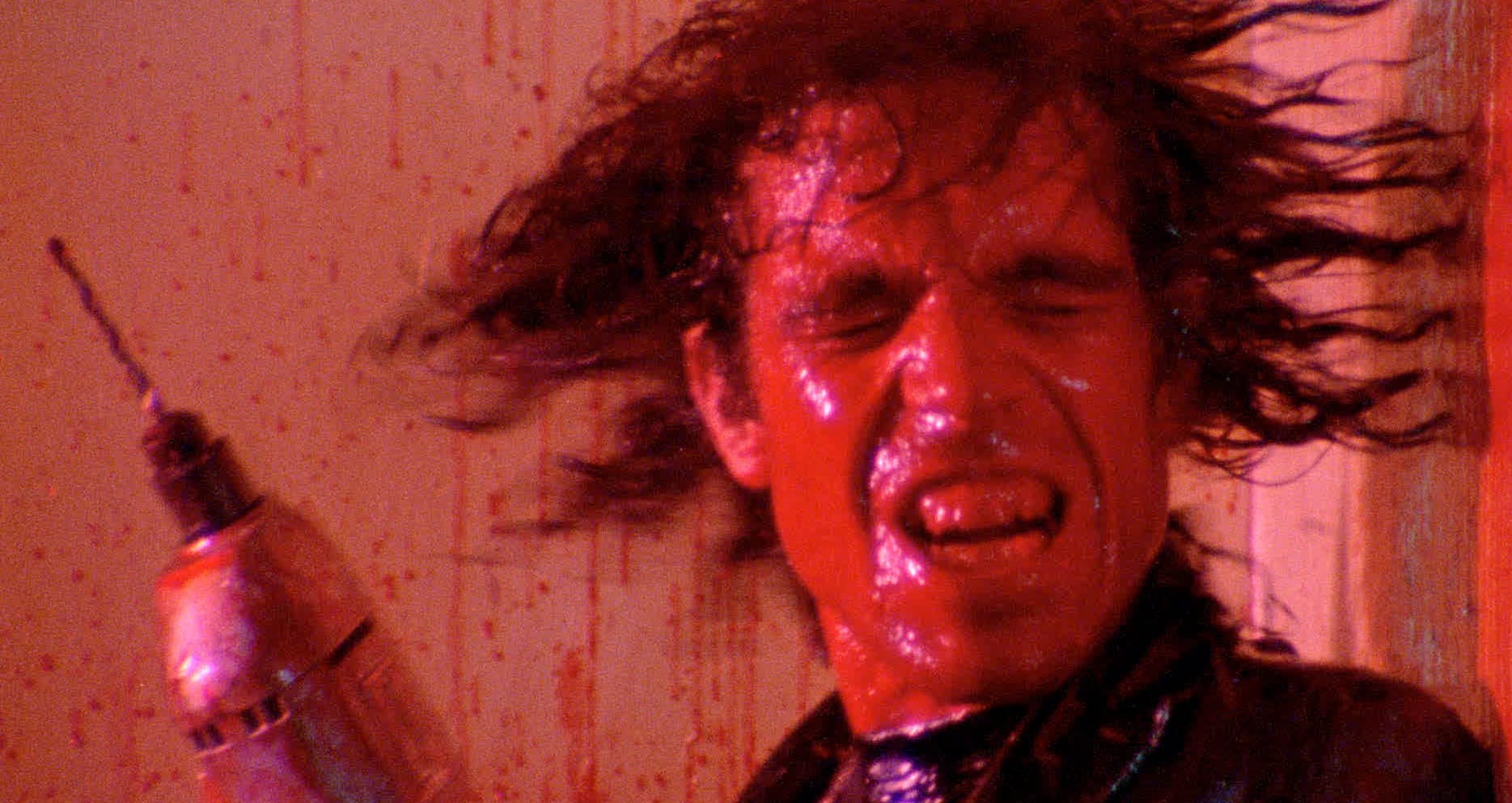
“You look better in the flesh then you did in your 8 x 10s” – a reference to the actors headshots that once lined theatre foyers, again underlining the performative nature of sex in Café Flesh.
“Kitten with a whip” – reference to the 1964 Ann-Margret vehicle.
“Now I'm Moms - the June Taylor of the nuclear set” – perhaps the most dated line in Café Flesh, which nevertheless got the biggest laughs during the early 1980s when it played at Los Angeles’ Nuart Theatre as a Midnight Movie. June Taylor was a choreographer whose dance numbers were featured on Jackie Gleason’s variety programs, and a regular staple of The Tonight Show Starring Johnny Carson.
“This cat's flamin'... all the way, stud. He's on his way!” – Richard Belzer was a contender for the role of Max, ultimately played by Andy Nichols. Nichols’ sister, Darcy, plays Moms.
“Goddamn! I'm a Rocket 88!” – reference to the classic Memphis song, originally recorded by Ike Turner and his Kings of Rhythm.
“You're going to go places, kid” – a quotation of Burt Lancaster in Alexander Mackendrick’s Sweet Smell of Success (1957), a Sayadian favourite.
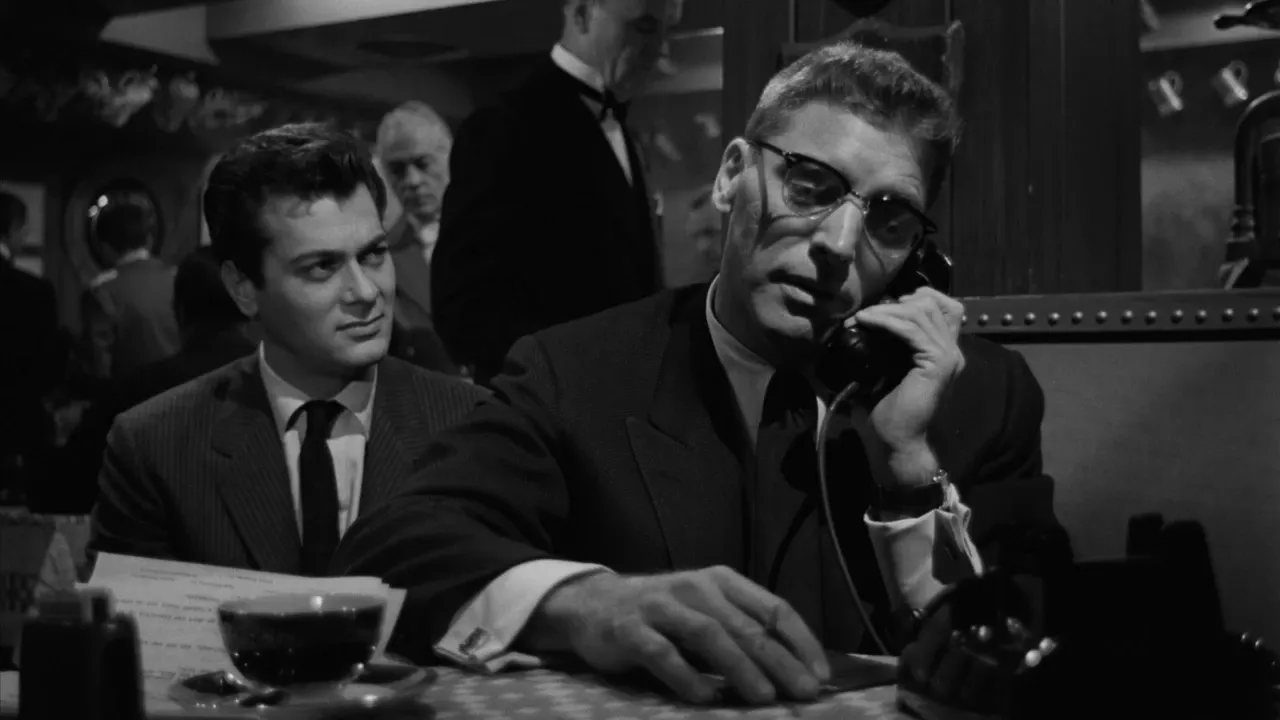
“I got outta the Seabees in 57. Spent 5 years as a pin jockey” – Seabees, derived from CBs, i.e. the US Naval Construction Battalions. As a child, Sayadian was a pin jockey, i.e. he set pins in bowling alleys.
“Got a razor blade?” – foreshadowing Nick’s (unfilmed) suicide.
“Looks like the young Mitchum” – Robert Mitchum, of course. Night of the Hunter (1955) is, for Sayadian, a major influence, not least its expressionistic studio-bound rendition of an ominous world through children’s eyes.
“First Rock. Then Tab. Then Fabe” – actors Rock Hudson, Tab Hunter, and Fabian Forte.
“Gidget” – reference to the 1959 film, starring the diminutive Sandra Dee.

